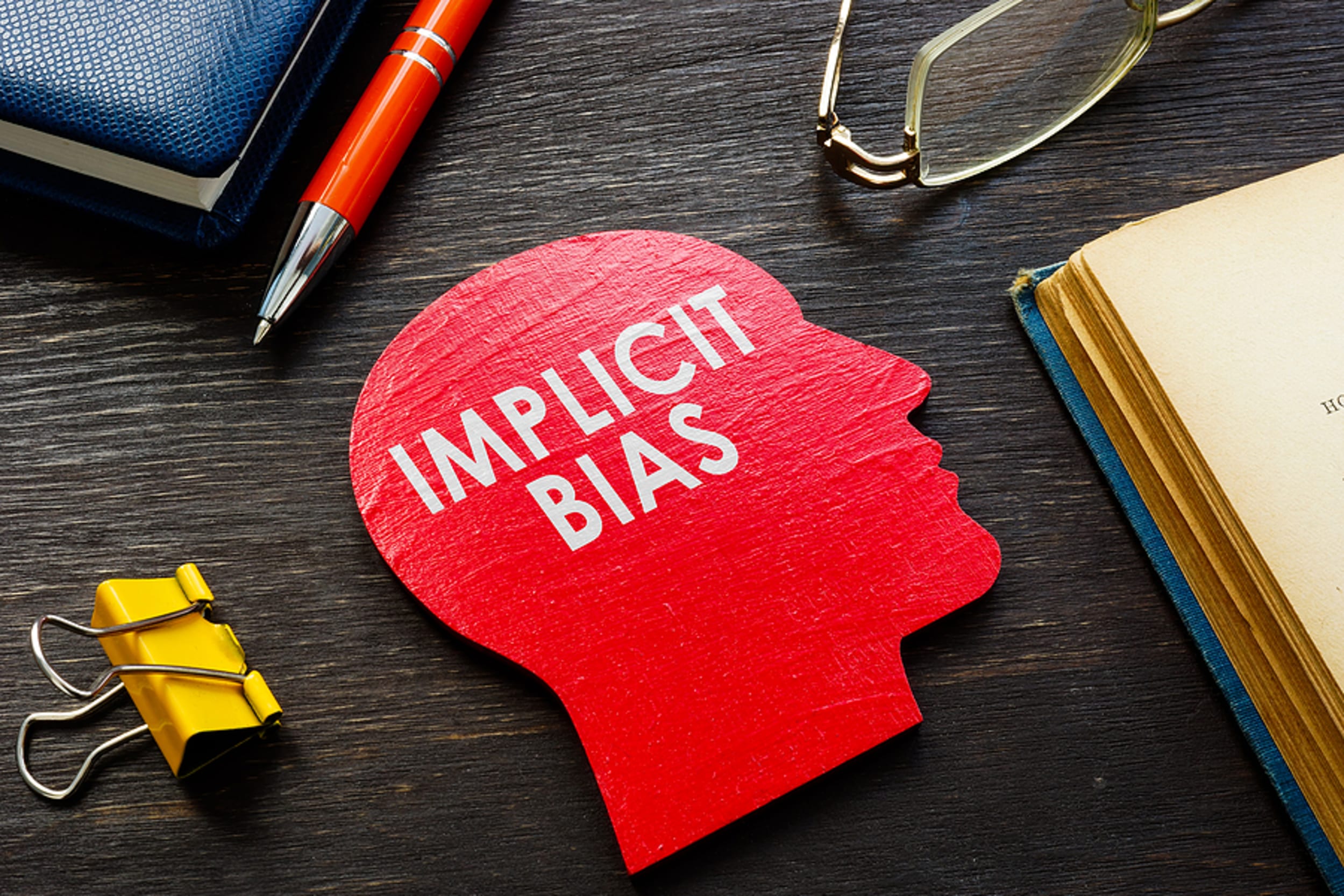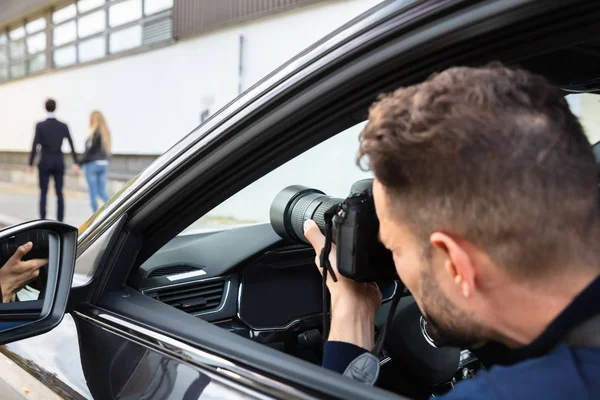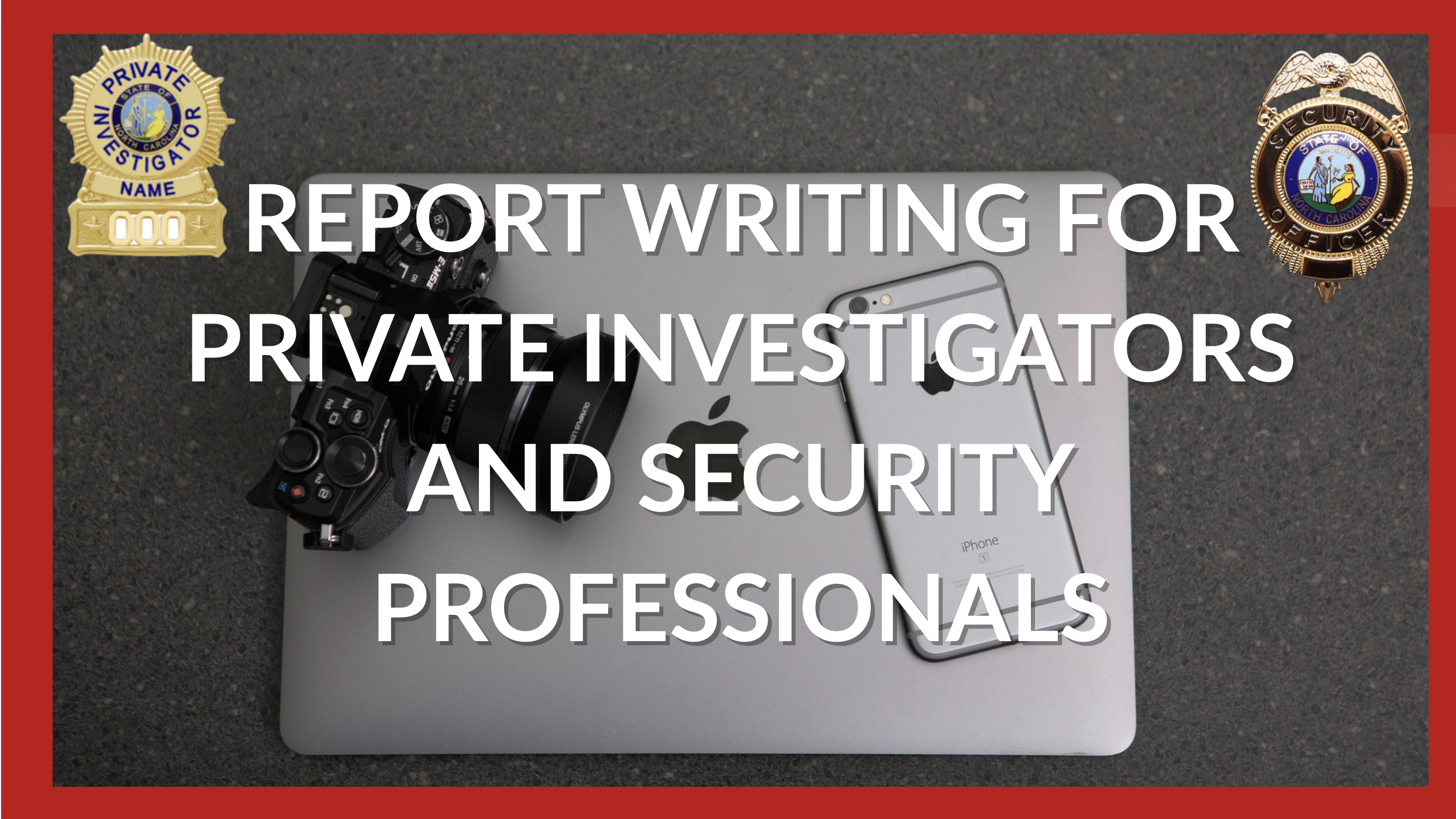Virtual Live Courses

Active Shooter/Workplace Violence & Defense
PPSB-23-005NCPPSB-Approved Live Virtual Training: Active Shooter Emergency Response Join this interactive, live virtual course that fulfills NCPPSB continuing education requirements while preparing security professionals for active shooter emergencies. Through real-time instruction, learn critical threat assessment, life-saving protocols, and emergency response strategies based on law enforcement best practices. This certified program delivers hands-on virtual training that meets multi-state requirements for active shooter response.
CE Credits Available:

Workers Compensation Investigations
PPSB-22-084Learn key skills for workers' compensation cases, from surveillance to documentation. Perfect for investigators, security managers, and risk specialists. Master ethical practices and legal compliance while building professional expertise.
CE Credits Available:
On-Demand Courses

Understanding Implicit Bias in Security & Investigations
PPSB-22-074Understanding Implicit Bias in Private Investigations NCPPSB-Approved Live Virtual Training: Active Shooter Emergency Response This interactive virtual course fulfills NCPPSB continuing education requirements while preparing security professionals for active shooter emergencies. Learn critical threat assessment, life-saving protocols, and emergency response strategies based on law enforcement best practices. This certified program provides hands-on virtual training meeting multi-state requirements for active shooter response. Available on demand.
CE Credits Available:

Professional Surveillance and Field Operations
PPSB-24-086Introduction to Surveillance: Professional Investigative Techniques This comprehensive, on-demand training program equips private investigators with fundamental surveillance skills and report writing expertise. Through detailed instruction, learn methodical observation techniques, vehicle documentation, subject residence assessment, and professional report structuring. Master the essential elements of creating defensible investigative documentation that meets client needs and legal standards. This certified course delivers actionable skills for conducting effective surveillance operations while maintaining professional objectivity in all written reports. Perfect for new investigators and experienced professionals seeking to enhance their documentation practices for insurance, domestic, and corporate investigations. **Approved for 6 hours of Continuing Education Units (CEU) and certified by the NCPPSB
CE Credits Available:
.jpg?alt=media&token=a416f866-6be6-4e5c-9982-b8ab8b91195b)
Active Shooter/Workplace Violence & Defense
PPSB-23-005This On Demand training Active Shooter Emergency Response Join this interactive, live virtual course that fulfills NCPPSB continuing education requirements while preparing security professionals for active shooter emergencies. Through real-time instruction, learn critical threat assessment, life-saving protocols, and emergency response strategies based on law enforcement best practices. This certified program delivers hands-on virtual training that meets multi-state requirements for active shooter response.
CE Credits Available:

Workers' Compensation Investigations
PPSB-22-084Learn key skills for workers' compensation cases, from surveillance to documentation. Perfect for investigators, security managers, and risk specialists. Master ethical practices and legal compliance while building professional expertise.
CE Credits Available:

Interview Techniques: The PEACE Model
PPSB-22-072The P.E.A.C.E. Method: Advanced Interview Techniques for Security & Investigations Master professional interview strategies used by seasoned investigators and security professionals. From workplace incidents to victim statements, learn systematic approaches to evidence gathering and case documentation. This structured framework equips security managers and investigators with proven techniques, combining tactical interviewing skills with industry best practices for comprehensive case resolution.
CE Credits Available:

Report Writing for Private Investigators and Security Professionals
PPSB-24-087Professional Investigative Report Writing Course - On-Demand Training Master essential report writing skills with this comprehensive on-demand course designed specifically for private investigators and security professionals. Learn to create clear, accurate, and legally compliant investigative reports that meet professional standards for insurance claims, legal proceedings, and client documentation. This course covers critical documentation techniques including subject descriptions, activity recording, evidence integration, and specialized report types for workers' compensation investigations, welfare checks, and corporate due diligence. Enhance your professional credibility with reports that maintain accuracy, clarity, and objectivity while withstanding legal scrutiny. Perfect for private investigators, security guards, and investigation professionals seeking to improve their documentation skills and deliver professional-grade reports that support client needs and legal requirements. Available 24/7 - Start Today
CE Credits Available:

HIPAA Privacy and Security Laws: State and Federal
PPSB-22-076HIPAA Training for Private Investigators This essential course teaches investigators how HIPAA regulations govern the handling of Protected Health Information (PHI) in private investigations. Learn your legal responsibilities as Business Associates while mastering privacy protocols and security measures through real-world scenarios that ensure federal compliance.
CE Credits Available:

NC 74C for Security Managers: Quick Decisions, Safer Outcome
PPSB-24-088The training covers the legal framework, ethical considerations, and practical skills needed for effective security work in North Carolina. It breaks down complex regulations into easily understandable content for participants at a 6th-grade comprehension level.